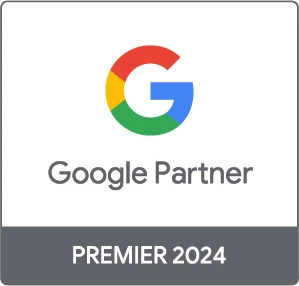Panda 4.0, your e-shop & eBay: a conspiracy theory
On the 20th of May, SEO’s favorite anti-spam Googler, Matt Cutts, announced via Twitter the rollout of its Panda 4.0 update. But how will that affect our websites and especially our e-shops?
Panda 4.0
The times where one needed to mindlessly spam a series of keywords and buy out thousands of backlinks in shady directories in order to rank high in SERPs (Search Engine Result Pages) are long gone. In the “old days” the algorithm that decided which websites to rank high was updated seldom. However, the complexity of its duties are unimaginable; how can one- man or machine- compare, let alone rank, entities so different to each other? A website with general information on a subject, lets say “computers”, is totally different to a site about computer news, and the comparison to an e-shop that sells PC’s is outright ridiculous.
This exact complexity of Google’s algorithm and the fact it was seldom updated has allowed SEOs to game the system and go after high ranks with websites that did not offer anything of importance to their visitors.
Following the growth of Google, and its dominance as world’s major channel of information, a series of changes in the philosophy of Google’s algorithm have taken place. Nowadays the common denominator in every aspect of the code is to serve content of the highest quality for every search query. At the same time the penalization of websites that try to game it is another core element of every Google update.
How well would you receive a 80% drop in organic traffic to your e-shop?
Undeniably, one of the hardest tasks of SEO agencies and professionals is to handle e-shops. The absence of text that will assist the algorithm to evaluate the value of the website and the existence of many pages with very thin content (products) makes e-shops hard to understand by the “machine”.
Many bolder SEOs have tried…helping the Google robots with the use of various tricks; you may have heard of doorway-type pages and you have definitely seen numerous spam comments with various links in shady blogs, but the results are always short-termed.
Sooner rather than later one of the next updates of Googles algorithm- may it be Panda 4.0, some other version of Penguin, Hummingbird or whatever animal they choose to name it after- covers all of its holes and penalizes temporary or permanently the domains that tried fooling it. It is rather easy to understand what kind of a money sink such a penalty can be to a company.
And just like that many website owners who were buying zero-quality links for half a euro, are now on the hunt for directories’ webmasters to beg them to delete those very links for 5 euros each.
The terror scenario: eBay
But where did we start? Panda 4.0 on the 20th of May 2014.
The chatter and assumptions made by SEOs during those days reaches its height. Up until the point where we assume a first crawl by Googles robots to be complete we’re free to power to rumor-mill as to what the impact of the update will be.
And this time we had one more reason: Changes in the algorithms happen on a monthly basis. For an official announcement to happen, something big is coming our way. But what followed, no one expected.
Skipping past the technical details, the end result was as follows: eBay lost 80% of its best search queries. Just try searching for “iPhone 5 cases”. As this is being typed, eBay is nowhere to be found. The loss in revenues in such a commercial search query is unimaginable.
eBay’s exemplary punishment has come as a result of both algorithmic as well as manual penalization on Google’s behalf. eBay had a sophisticated method in place which pointed the search engine robots to pages that weren’t easily accessible by a website visitor. Of course, those pages were over-optimized. The technique in question was very intelligent and hovered over the limits of “legality”. Google decided they were guilty of over-optimization and penalized them as such.
OK I got ‘till here; what do I win?
Of course, every tiring effort has to be rewarded and since you read up until here, we got to save you some money. For better or for worse then, ask your digital marketing agency or professional whether they perform SEO for you with one of many…shadier techniques, that may bring fast results, but at the same time guarantee the eventual penalization of your domain and the loss of your organic traffic.
Those techniques may sound sophisticated to an, unfamiliar to SEO, businessman. In reality it’s the result of 10 to 20 clicks that may bring results fast, but will make a website disappear of SERPs soon enough.
Unless your business belongs to the “BUY gold NOW” industry and your business plan has a depth of more than 1 month you do not want to get involved in such black hat techniques. eBay used techniques a medium-sized multinational wouldn’t be able to get its hands on and got crushed by Google. The assumption that it won’t spear you is rather easy to draw.
And it is quite saddening to report this, since a certain someone will have to return to the daily, hard and ever-changing tasks of SEO. Sometimes slow, definitely complex, but always fruitful. Unfortunately. (?)
Bonus Conspiracy Theory: One year before the roll out of the Panda 4.0 update, eBay’s research lab conducted a study; its goal was to prove that if a website is ranking in the first organic positions, further expenses for paid ads on Google did not result in an increase in sales.








